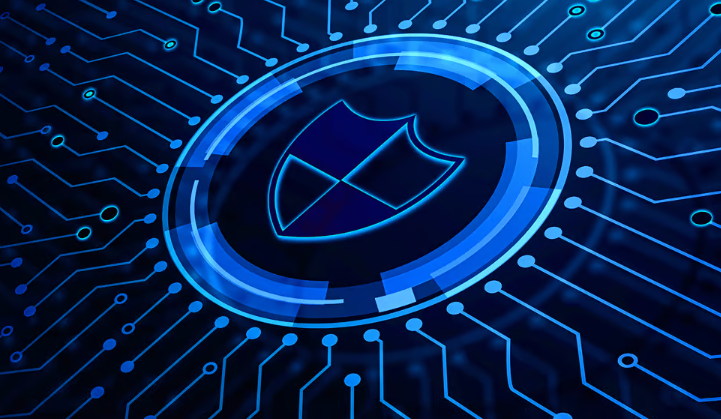Does Cybersecurity Require Coding?

Admin
AI Research Analyst | 13 December 2024Table of Content












In 1987, the history of computer security began with the introduction of the first antivirus software. As computers became connected over the network, the need for security measures grew. In the 1970s, the first computer virus, "Creeper," was created, sparking concerns about cybersecurity. As technology has advanced over the years, so have the methods used to deal with cyber threats. Various defence mechanisms and tools have been developed to connect to digital information systems walls.
What role does coding play in cybersecurity?
Network safety experts use coding to make instruments and frameworks that safeguard PC organizations and information. The primary programming dialects in this space are Python, PowerShell, SQL, and Java. These dialects are utilized for errands like mechanization, danger recognition and occurrence reaction.
Coding is significant in network safety since it empowers secure programming improvement. Secure coding rehearses assist with keeping malevolent movements from being taken advantage of by vindictive entertainers. Network protection experts use coding abilities to examine weaknesses, mechanize security errands, and answer episodes.
Understanding coding permits network safety experts to expect and battle likely dangers. Coding is a significant piece of the network safety industry, making it a fundamental ability for experts in the business.
How does it work?
Network safety coding utilizes programming dialects to foster secure programming and instruments that shield PC frameworks from digital dangers. Coding includes composing, testing, and altering code, as well as making an interpretation of human directions into a structure that a PC can execute. This cycle is basic for applications that can successfully oppose assaults, address weaknesses, and answer episodes.
Coding in online protection helps carry out safe programming improvement rehearses that limit gambles. By observing safe coding rules, engineers can forestall normal weaknesses like SQL infusion and support spills over. Normal consistency audits and security testing are fundamental to recognising and remediating possible weaknesses before the product is conveyed, guaranteeing those applications stay secure from use
Furthermore, coding is fundamental to network protection examination and development. Specialists use coding to reproduce assaults, dissect information, and foster new security advancements, such as AI, to distinguish dangers. As digital dangers advance, coding turns into fundamental expertise for online protection experts to make compelling safeguards and keep up with the security of computerized frameworks.
Importance of Coding in Cybersecurity
-
Making Secure Programming:
Coding empowers network protection experts to make programming that is protected from dangers. By following secure lawful practices, designers can forestall weaknesses that programmers can take advantage of, like SQL infusion or support spills over.
-
Straightforward:
Coding abilities assist representatives with understanding how frameworks work and where they may be frail. This understanding is fundamental to recognising potential security imperfections and carrying out successful guards against cyberattacks.
-
Computerization and productivity:
Coding empowers computerized security undertakings, like checking networks for dubious action or examining enormous amounts of information for dangers. This computerization makes it more straightforward to answer rapidly to potential security issues.
-
Progressing learning and change:
Network protection is continually advancing, and coding abilities permit representatives to keep up to date with the most recent dangers and advancements. Support in proceeding with schooling assists them with finding imaginative answers to arising security challenges.
Does Network Protection Require Coding?
Indeed, network protection requires coding; however, how much coding requires changes from one occupation to another. In a few positions, for example, network safety designers and programming engineers, major areas of strength require abilities to make secure frameworks and safeguard against digital dangers. Compose and test code to fix weaknesses and foster protections against assaults.
Then again, a few jobs, like security examiners, don't need progressed coding information; however, they can, in any case, profit from fundamental coding abilities. Understanding coding assists with knowing how proficient programmers work and how actually to get frameworks. In general, coding is a significant piece of network safety, assisting with establishing a solid computerized climate.
Uses of Coding in Cybersecurity
- Administrators write code to create firewalls, intrusion detection systems, and secure network infrastructure that protect systems from attack.
- Coding enables cybersecurity professionals to write and test code to find software and systems vulnerabilities, helping prevent them before they are implemented.
- Ethical hackers use coding to simulate attacks on systems and identify security flaws that must be addressed.
- Coding helps automate repetitive security tasks, such as monitoring the network for suspicious activity, making responses faster and more efficient.
- It is used to analyze large amounts of data for potential threats, helping to analyze and respond to incidents more effectively.
- To keep sensitive information secure and prevent unauthorized access, it is necessary to use coding to create algorithms that encrypt data.
Why is Coding Significant for Online Protection Experts?
Network safety experts need coding abilities to foster secure programming and apparatuses that safeguard against online dangers. Python, PowerShell, SQL, and Java programming dialects are normally utilized. These dialects assist them with building significant security highlights like firewalls and assault recognition frameworks, protecting PC frameworks from assaults.
Knowing how to write code helps cybersecurity experts find problems in software and systems. When they understand how code works, they can spot mistakes or weaknesses that could be dangerous. This skill allows them to protect systems better by fixing these issues before they can be exploited.
Also, coding works with programmed security undertakings so administrators can rapidly screen and investigate the organization. With coding abilities, online protection experts can investigate information for possible dangers and foster new innovations to develop security further. Coding is a key expertise that helps protect associations from digital dangers.
Key Cybersecurity Jobs That Require Coding
-
Cyber Security Engineer:
Cybersecurity engineers protect systems from cyber threats by identifying vulnerabilities and creating secure codes. Average salary: $100,000 - $130,000 per year.
-
Software Engineer/Programmer:
These professionals develop new security technologies and improve existing software to keep data safe. Average salary: $90,000 - $120,000 per year.
-
Software developers:
Software developers create custom applications specifically designed to protect organizations from cyberattacks. Average salary: $85,000 - $115,000 per year.
-
Ethical Hacker:
Ethical hackers test systems for security vulnerabilities by simulating attacks for vulnerabilities. Average salary: $80,000 - $120,000 per year.
-
Digital Forensic Investigator:
This investigator investigates computer crimes and uses cryptographic tools to identify evidence from digital devices. The typical salary ranges from $70,000 to $100,000 per year.
-
Cryptographers of text:
Cryptographers write complex encryption codes to protect sensitive data and prevent unauthorized access. Middle pay: $100,000 - $150,000 per year.
Conclusion
Coding is important in cybersecurity. It helps businesses develop secure software, find and fix vulnerabilities, and automate security tasks. Major programming languages like Python and Java are commonly used. While some computer security jobs, such as security analysts, may not require extensive coding skills, knowing how to code is very useful and can greatly improve your career. Knowing how to take classes or online resources is a great way to start if you are interested in a cybersecurity business.
FAQs
1. Does cybersecurity require coding skills?
Yes, coding skills are important in cybersecurity, especially for roles like cybersecurity engineers and software developers. They help develop secure software and identify vulnerabilities.
2. Which programming languages are used in cybersecurity?
Common languages used in cybersecurity include Python, Java, C++, and JavaScript. Python is especially popular for its simplicity and effectiveness in writing security tools.
3. Are there any cybersecurity jobs that don’t require coding?
Yes, many entry-level cybersecurity roles, such as information security analysts, may not require advanced legal knowledge. However, having some coding skills can be useful.
4. Why is coding important for cybersecurity professionals?
Coding helps employees understand how software works so security problems can be identified and fixed. It enables secure applications and automation of security tasks.
5. How do I learn to write cybersecurity?
Learning is the key to success. You can learn how to code through college classes, online courses, coding bootcamps, or self-study using free online resources and tutorials.


